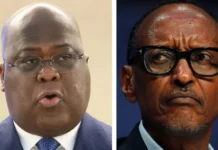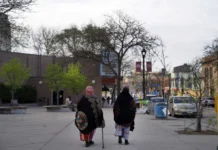A wave of AI-generated deepfake videos featuring global celebrities, including R. Kelly, Beyoncé, Justin Bieber, and even a fictional Pope Leo XIV, is being used to promote Burkina Faso’s military ruler, Captain Ibrahim Traore, in a sweeping online propaganda campaign.
The videos, which have gone viral across West African social media platforms, falsely depict the celebrities praising Traore’s leadership. One widely circulated clip attributed to disgraced musician R. Kelly includes lyrics such as “for the love of his people, he risked it all… bullets fly but he don’t fall… he’s fighting for peace in his motherland.” Though entirely AI-generated, the video has been viewed over two million times since May.
Experts describe the content as part of a coordinated disinformation effort designed to boost Traore’s image and extend his influence beyond Burkina Faso, especially into English-speaking neighbors like Ghana and Nigeria. “These are influence campaigns meant to expand the personality cult of Captain Traore,” said an American researcher who requested anonymity.
Traore seized power in a coup in September 2022, promising to restore security in a country ravaged by jihadist violence. However, attacks have since intensified, with thousands more lives lost. Amid growing unrest, the government has cracked down on dissent, detaining opposition officers and silencing the press. Several journalists have reportedly been threatened with conscription or jail time for criticism.
The viral AI videos are being propagated by a network of influencers and pro-junta activists, including members of Burkina Faso’s Rapid Communication Intervention Battalions (BIR-C), described by insiders as a “digital army” operating under the direction of US-based activist Ibrahima Maiga.
While officials deny any foreign involvement, analysts suggest Russian influence is aiding the campaign’s reach. “The anti-imperialist narrative being pushed, portraying Traore as Africa’s liberator from Western control, aligns with Russia’s strategic interests in the region,” said the Burkinabe strategic communication specialist, who also requested anonymity for safety.
Nigerian journalist Philip Obaji confirmed that some media outlets in Burkina Faso and Togo have accepted payments from Russia-linked operatives to disseminate pro-junta content.
As the junta tightens its grip on power and curbs free expression, activists in the Burkinabe diaspora attempting to challenge the regime’s narrative risk legal consequences, including charges of glorifying terrorism for sharing content related to jihadist attacks.
The disinformation campaign reflects a growing trend in African authoritarian regimes’ use of artificial intelligence to manipulate public opinion and solidify control, a development that raises deep concerns about media freedom, regional stability, and digital ethics.
Written By Rodney Mbua



















